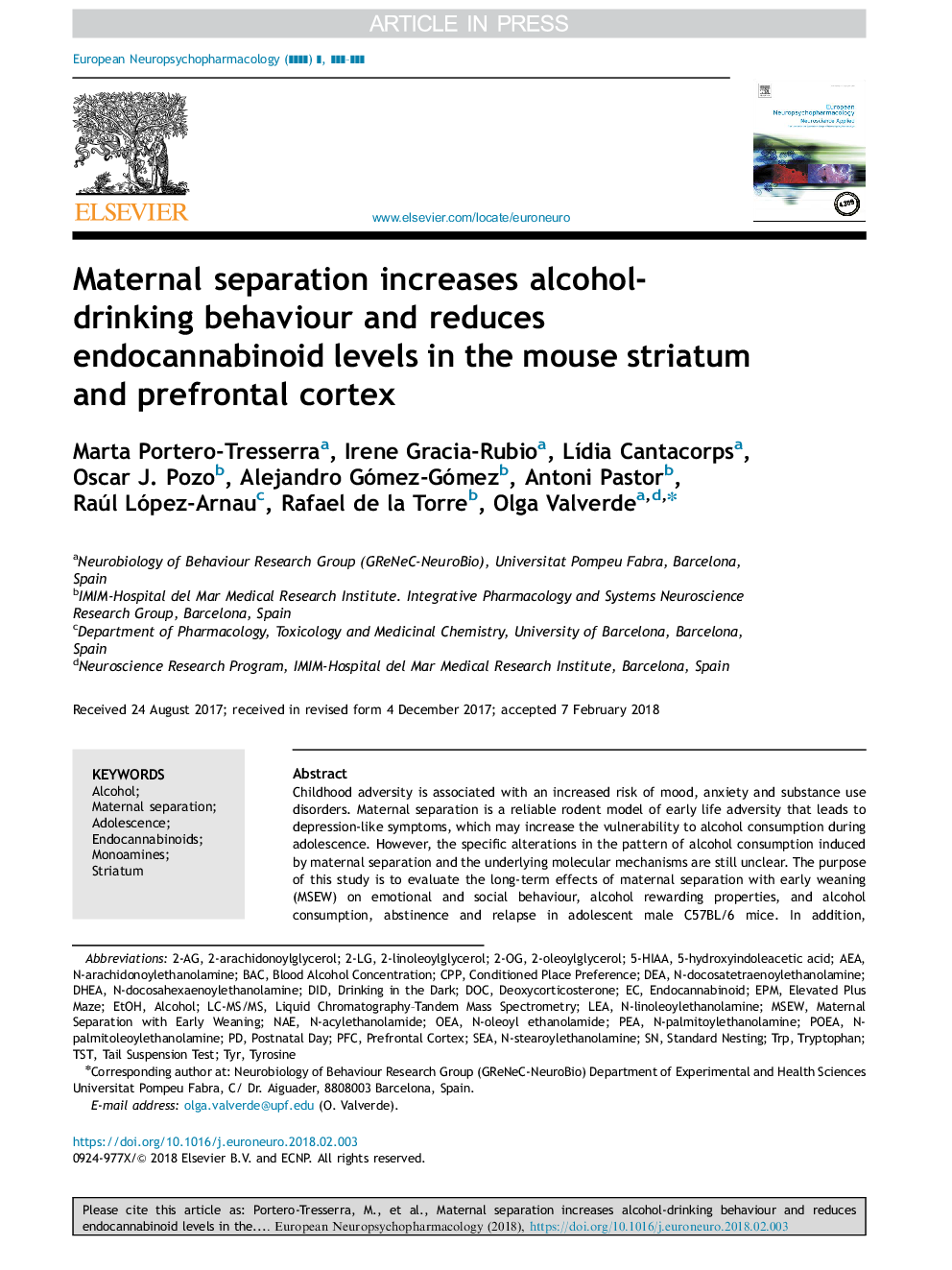ترجمه فارسی عنوان مقاله
جداسازی مادری باعث افزایش رفتار الکل می شود و سطوح اندو کانابینوئید در موش صحرایی موش و قشر پیش فونتیال را کاهش می دهد
عنوان انگلیسی
Maternal separation increases alcohol-drinking behaviour and reduces endocannabinoid levels in the mouse striatum and prefrontal cortex
| کد مقاله | سال انتشار | تعداد صفحات مقاله انگلیسی |
|---|---|---|
| 120592 | 2018 | 14 صفحه PDF |
منبع

Publisher : Elsevier - Science Direct (الزویر - ساینس دایرکت)
Journal : European Neuropsychopharmacology, Volume 28, Issue 4, April 2018, Pages 499-512

